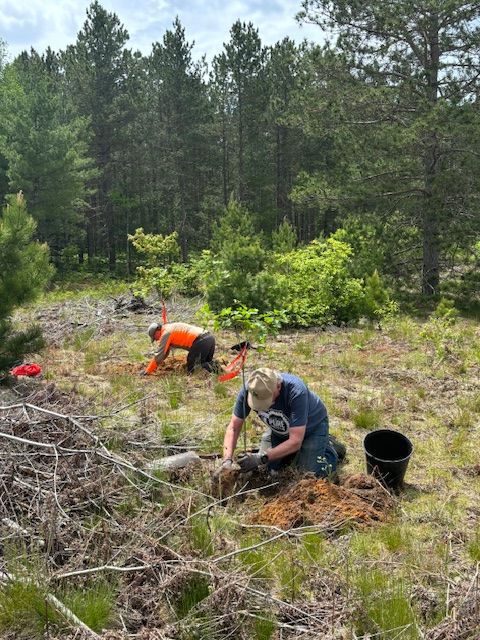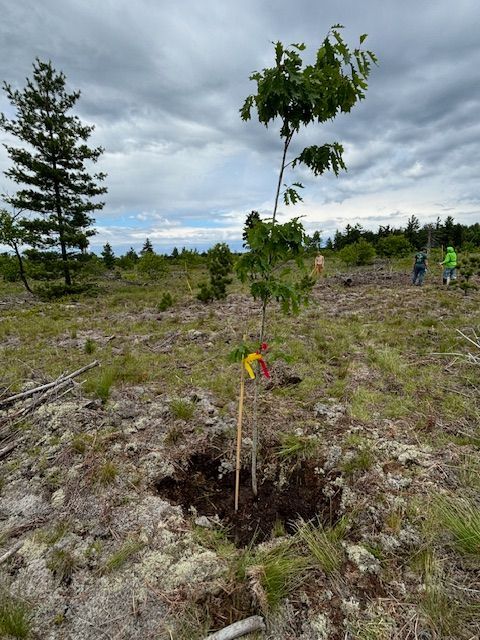On the Ground: Volunteers Plant Trees for Wildlife at the Newberry Forest Management Unit
On Saturday, June 8, 2024, MUCC’s On the Ground program partnered with the Michigan Department of Natural Resources (DNR) to host 16 volunteers for a tree-planting event at the Newberry Forest Management Unit in Luce County. This area is home to the Silver Creek Birding Trail , a popular destination for birders. The trail features diverse temperate and boreal forests home to many breeding and migrant bird species including the Eastern Bluebird, American Redstart, and Magnolia Warbler. This was the first event of the year in the UP for On the Ground, and we are excited to return for more projects!
Volunteers Planted a Variety of Trees
Volunteers planted 100 red oak trees and 5 apple trees at three different sites within the forest management unit. They also installed fencing around each apple tree to help prevent overbrowsing from wildlife. These trees will provide critical food and cover for a variety of species including deer, turkeys, small mammals, and songbirds. Volunteers planted each tree with compost and gave them water to ensure a high chance of survival. Stakes were also placed on some trees so they will grow tall and strong. In total, volunteers directly improved 17 acres of wildlife habitat through this project.
Oak trees can produce thousands of acorns each season. Each acorn is loaded with nutrients like protein and fat, making it a superfood for wildlife. These trees also play host to many different caterpillars. In the United States, there are about 900 caterpillar species that live in oak forests. More than 9 out of 10 North American terrestrial birds raise their young on insects such as caterpillars, so a healthy insect population leads to healthy bird populations. White-tailed deer will also feed on acorns as well as the buds of next year’s oak leaves.
In addition, apple trees provide many benefits for wildlife, including forage for white-tailed deer and roosting areas for many songbirds. The fruit on their branches persists throughout the fall and winter, creating a food source during a critical time of year when resources can be scarce.
Upcoming Projects
On the Ground is heading into our summer season! Check out our upcoming events listed below to see how you can get involved with improving wildlife habitat. All registered volunteers receive lunch and a free appreciation gift for their efforts.
Saturday, July 13, 2024, from 9 AM to 12 PM – 2024 Annual Manistee River Cleanup (register HERE )
Saturday, August 3, 2024 (time TBD) – Stewardship Day/Invasive Species Removal at Gourdneck State Game Area (registration opens on June 21)
Recent Posts





